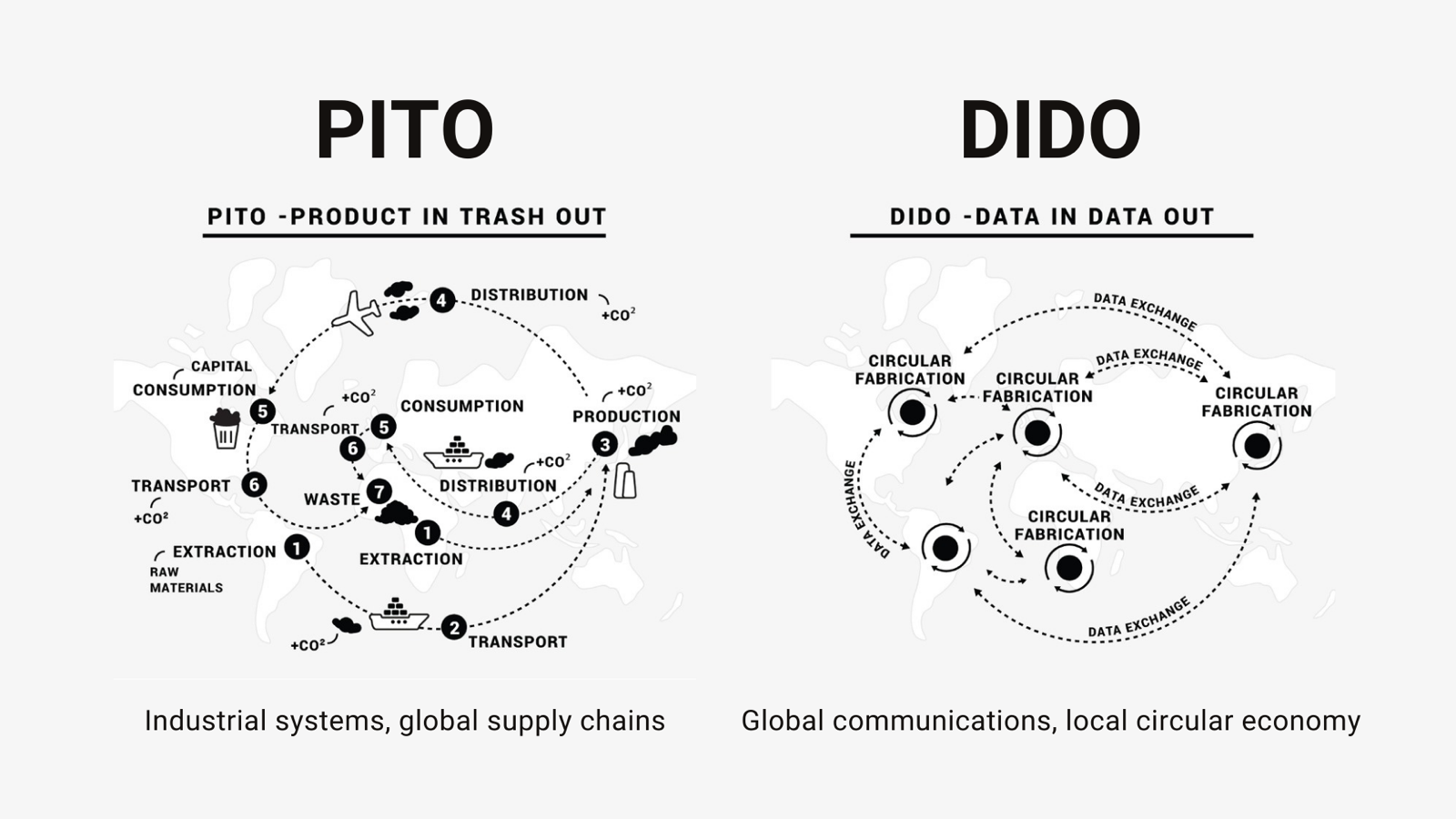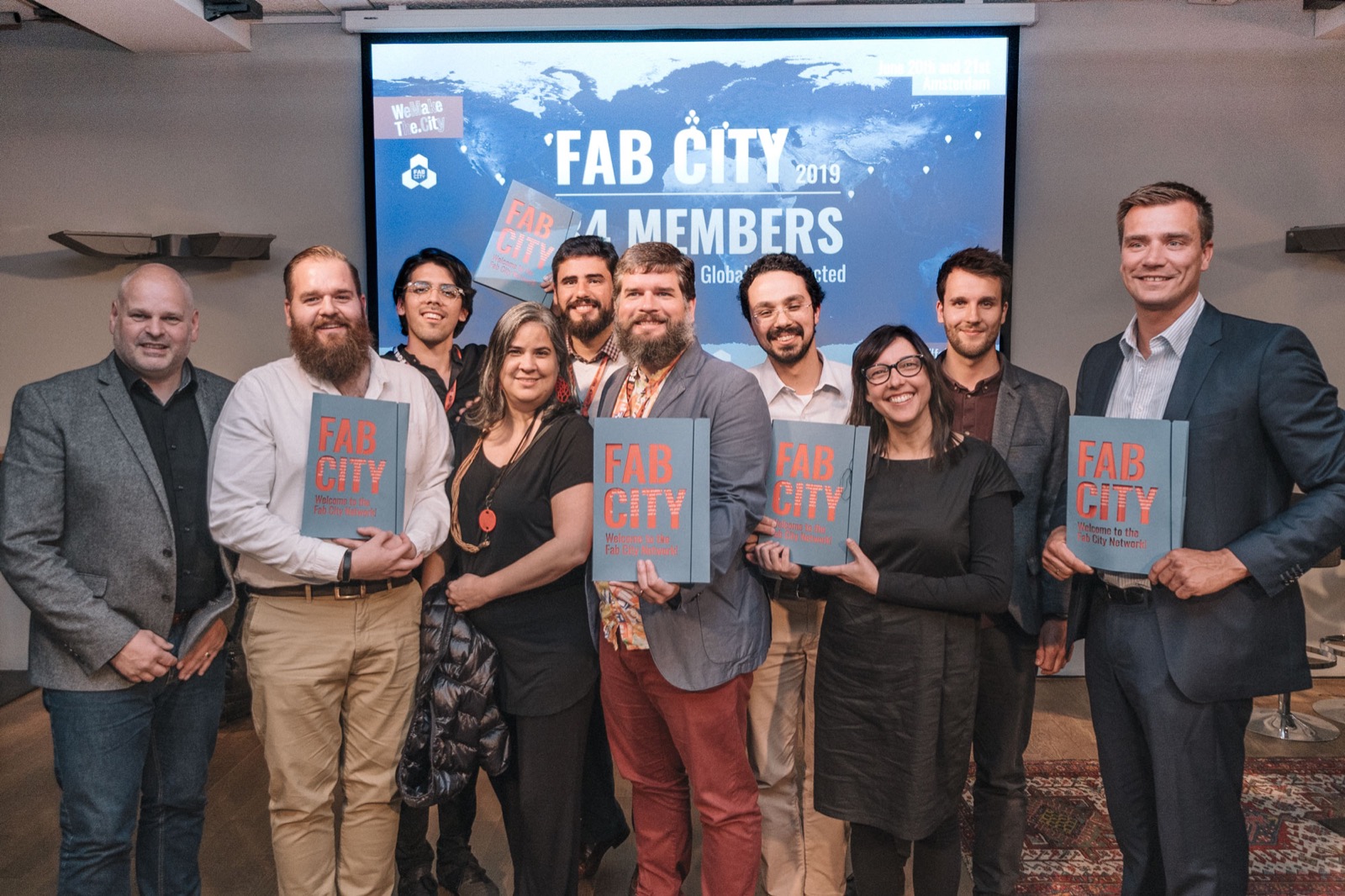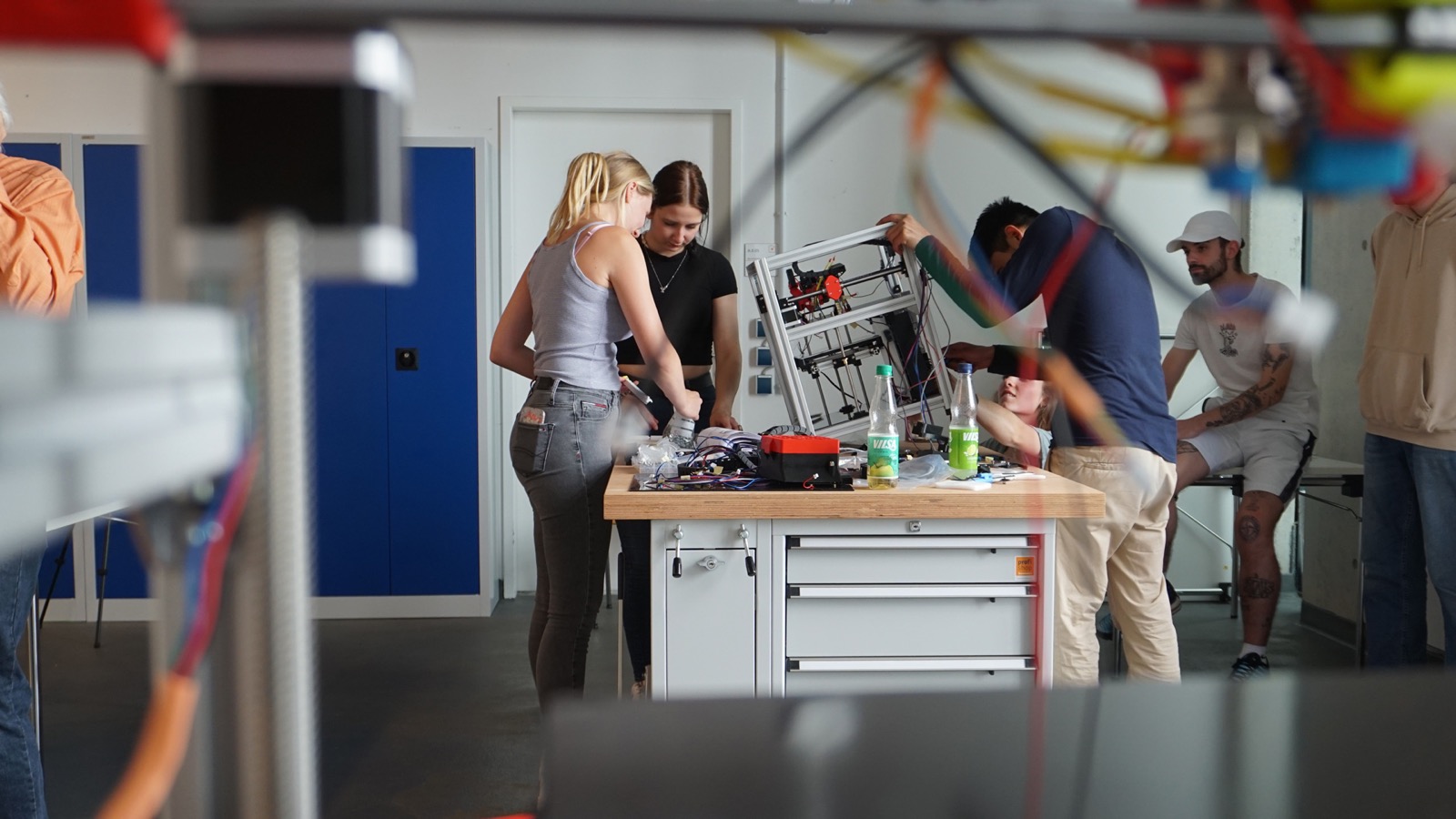Several global trends are shaping the present: climate change, a relentless wasting of resources, global supply chains, world-spanning digitalization, as well as massive shifts in how we work. These trends reinforce each other, and the COVID-19 pandemic has exacerbated them since 2020. This has become evident, for example, in critical supply bottlenecks. At the same time, more and more people around the world are moving to cities because the opportunities for finding jobs are better in cities than in rural regions.
Where is it all headed?
The current situation
At present, 50% of the world’s population already lives in cities; according to UN Habitat forecasts, this figure could rise to 70% by 2050.
However, cities or urbanized regions aren’t operating sustainably yet: Their share of greenhouse gas emissions and resource consumption is very high. They are the hubs of globalized consumption and worldwide data flows that consume more and more energy.

However, cities also present an opportunity: While nations are only making slow progress in environmental and climate diplomacy, it is much easier to set the course for a sustainable future in cities. Cities are also places where alternatives to the current form of globalization, with all its familiar problems, are being tested and lived out around the world. This is precisely where the idea of the Fab City comes in. As catalysts, Fab Cities can significantly accelerate and increase the impact of cities in economic, sociocultural and ecological arenas. This way, we foster sustainable development that makes cities more livable.
The concept of a Fab City
A Fab City is a city that increasingly manufactures (almost) everything it needs and consumes itself. The long-term goal of the global Fab City Initiative is to transition to an open source-based circular economy in a city or region by 2054. Only data would need be imported and exported - energy, raw materials, components, semi-finished products, and products, would circulate, be recycled, and reassembled within the city itself. The economy is shifting from today’s PITO model (“Products In - Trash Out”) to the DIDO model: “Data In - Data Out.”

This would be environmentally sustainable because the city can manage its own resource consumption and greenhouse gas emissions better.
It would be economically sustainable because it promotes local value creation, and no longer depend on global supply chains for products and raw materials.
Finally, it would be socially sustainable, because city residents would no longer be consumers of things produced elsewhere. They would be closer to where value is created - in turn strengthening the city’s social cohesion. What’s more, the creativity and autonomy of the entire city community can flourish in a way that hasn’t been seen yet.

The fact that the Fab City is not unrealized utopia or pipedream is due to several developments. More open technology is available in the form of openly licensed hardware and software. In this context, open means that the documentation on design and construction plans as well as software code are freely accessible and usable by all. This openness lowers the acquisition costs for production equipment so that an increasing number of people and organizations can acquire the technical expertise they need. Digitizing and networking production infrastructure makes it possible to manufacture things in a distributed and decentralized manner according to local needs, instead of mass production a few locations. The relevant data sets for manufacturing can be exchanged globally and adapted to local needs. With Maker Spaces, Fab Labs and Open Labs, the first prototypes for local production sites have emerged in recent years, where many actors can participate in the production of goods. With skilled tradespeople and companies, these open production sites can be developed into new, decentralized production infrastructure in the city.
First steps by 2024
By 2024, Fab City Hamburg e.V. plans to connect as many relevant stakeholders as possible and create the groundwork for a future Fab City. To this end, it is coordinating the following projects:
Developing and disseminating “Fab City OS,” the operating system for the global Fab City Initiative. Fab City OS (FCOS) includes software designed to make the Fab City production system, the Open Source Circular Economy (OSCE), so efficient that it displaces the traditional proprietary and linear economy. In doing so, we will divide OSCE into phases ranging from globally distributed development, to locally distributed manufacturing, to the sorting of materials. Each of these is supported by specific FCOS modules. In addition, FCHH bundles and distributes software under the name “Software Kit” to support the dissemination and use of FCOS. The principle of federated software architecture is applied throughout. FCHH develops and distributes FCOS and the Software Kit in close coordination with the Fab City Foundation. More about FCOS and the software kit can be found here.
Supporting and further developing Fab Labs/Makerspaces. Five open workshops were established in Hamburg in the 2010s, and more should be opened. They are the interface to civil society, provide way to learn about digital production (through workshops for example) with a low barrier to entry, and offer inventors the opportunity to produce initial prototypes of their innovative ideas. Fab Labs and Makerspaces are also training centers for citizen education and laboratories for citizen innovation. They are also meeting places for local communities and serve as a physical presence for outreach into neighborhoods, hopefully developing into “places of collective making and doing” in the long term.
Constructing a Fab City House as a prototype for future production sites that can manufacture products and machines in demand-driven small batches. The Fab City House will develop and produce the Open Lab Starter Kit, a set of open source digital manufacturing machines (consisting of a 3D printer, laser cutter, CNC router, among others) that new labs can adopt as basic equipment. In the Fab City House, examples of circular products and local manufacturing methods are researched and developed, including for metal, plastics, and renewable resources like wood and textiles.
The “Fab City Incubator” program. In the current labs and in city-wide idea competitions, product ideas for a circular economy will be identified and incubated to the prototype phase. Next, a local network of consultants will help inventors develop a business model. The product designs will also be published on Fab City OS. This publication on Fab City OS promotes the globally distributed development of the Fab City products.
Developing and implementing a workshop program to introduce more Hamburg residents to the opportunities offered by digital manufacturing. Aimed at beginners, advanced makers and companies, these workshops will take place mainly in the labs. Fab City Hamburg e.V. organizes workshops, for example on building the Open Lab Starter Kit or on new product designs.
Creating a Fab City Index for Hamburg based on the Fab City Paris index. For the index, data will be collected on the production capacities of Hamburg’s economy as well as on existing recycling capacity. This will help identify both gaps and potentials on the way to becoming a Fab City.

Values and guidelines
Open source principle: Wherever possible, we use open technologies that make codes and constructs freely available.
Data sovereignty: Data are commons.
Transparency: Production and recycling processes are documented so that all citizens can understand them.
Inclusion: The places and processes of the Fab City are open to all, regardless of their social status or origin; more than that, we are committed to ensuring that all citizens can acquire the necessary know-how for the Fab City.
Sustainable development: Fab City Hamburg e.V. is also guided by the Sustainable Development Goals of the United Nations.
Values and guidelines
-
Open source principle: Wherever possible, we use open technologies that make code and designs freely available.
-
Data sovereignty: Data belongs to everyone, it is held in common.
-
Transparency: Production and recycling processes are documented so that everyone can understand them.
-
Inclusion: The locations and processes of Fab City are open to all, regardless of their social status or origin; more than that, we are committed to ensuring that all people can acquire the knowledge to participate in Fab City.
-
Sustainable development: Fab City Hamburg e.V. is also guided by the Sustainable Development Goals of the United Nations.
Hamburg, February 2022